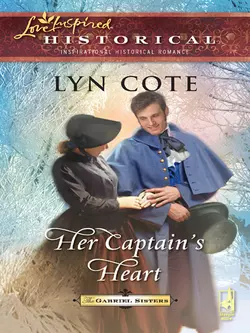Her Captain′s Heart

Lyn Cote
Тип: электронная книга
Жанр: Современная зарубежная литература
Язык: на английском языке
Стоимость: 463.36 ₽
Статус: В продаже
Издательство: HarperCollins
Дата публикации: 16.04.2024
Отзывы: Пока нет Добавить отзыв
О книге: Indulge your fantasies of delicious Regency Rakes, fierce Viking warriors and rugged Highlanders. Be swept away into a world of intense passion, lavish settings and romance that burns brightly through the centuriesNothing is impossible–as far as idealistic schoolteacher Verity Hardy is concerned.The lovely widow is certain teaching freed slaves in a Virginia town torn apart by the Civil War will help heal bitterness and old wounds. But she′s finding that the school′s cynical builder, Matthew Ritter, has little reason to have faith in her–or anything else.An ex-Union captain, Matt has seen more than his share of destruction. And the threats he′s getting about the school are almost enough to make him give up. But Verity′s spirit and courage inspire him to fight once again for what he believes in–and to show her they can reach their dreams together. . . .